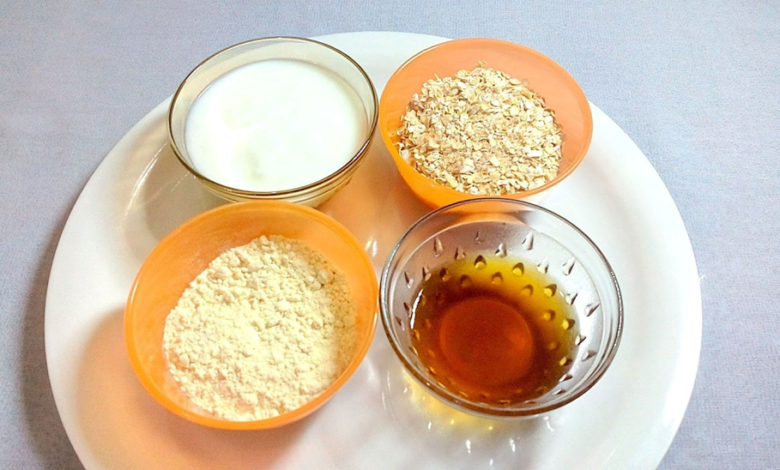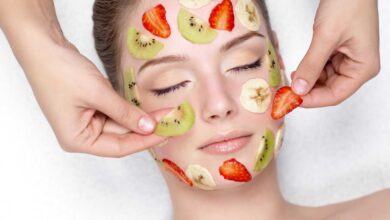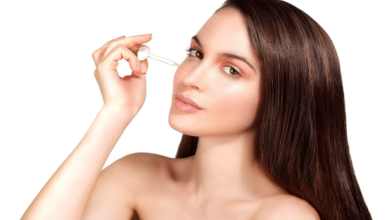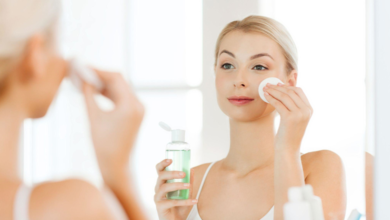Simple Home Remedies For Skin Whitening

Skin Whitening: Everybody experiences skin-related problems at some point in their lives. The skin tone has a significant impact on how someone looks. Melanocytes are cells found in the skin. These melanocytes are in charge of making melanin, the pigment that gives skin its color. Hyperpigmentation is the term used to describe the condition when the skin becomes darker than usual as a result of an excess of melanin.1. The tanning process is the skin’s reaction to UV radiation damage. Melanin is a pigment produced by the skin that helps to shield it from further injury.2.
In cases of darker-than-usual skin, skin whitening products may be applied. Certain variations in skin tone can go back to normal without medical intervention.1.
Why Does Skin Turn Darker?

The amount of melanin in the skin determines the color of the skin. The excess melanin causes the skin to become darker than usual. Tanning and exposure to the sun cause an excess of melanin to be produced.1,3
Melanin is the skin’s defense mechanism against UVA ray damage when it is overexposed to them. The reason for the skin’s unusual darkness is the increased production of melanin.2.
Skin Darkening Symptoms:
If your skin tone has changed to a darker shade than usual, you may be experiencing skin darkening.1.
Recommended Natural Treatments for Skin whitening
The following are some natural Skin whitening remedies:
1. Tea and coffee
The main part of sunlight that causes hyperpigmentation is ultraviolet (UV) radiation. Tea and coffee consumption may help to lessen skin discoloration. This advantage may be attributed to the polyphenols found in coffee.4 Fresh coffee grounds can be used to form a paste or mask that you can apply straight to your skin. Applying tea-infused facemasks directly to the afflicted area is one way to use them.
2. Saffron
Saffron has the ability to lighten tans and whiten skin. To give skin a glow and lighten its color, take it with milk. It also offers defense against UV radiation damage from the sun 5. To reap the advantages, you can add saffron to your homemade facemasks.
3. Seeds from grapes
Antioxidants such as vitamin C and vitamin E are abundant in grape seeds. Grape seeds’ antioxidant qualities are useful in the treatment of hyperpigmentation. The melanin-producing enzyme is inhibited by the antioxidant action.5.
4. Green Tea
The skin benefits from protection against damaging UV radiation from sun rays due to certain chemical elements in green tea.5. Green tea can be added to a face pack, which can then be applied to the injured region.
5. Plant Beefsteak
It can be used to control hyperpigmentation and brighten the skin. Because of its antioxidant and anti-aging properties, it is also a common element in herbal cosmetics.5. You can apply its seed oil topically to reap its benefits.
6. Root of Licorice
Glabridin, found in licorice root, is known as Skin whitening gold” because to its ability to whiten skin. A common component of many Skin whitening cosmetics is glaciridin. Licorice whitens skin by inhibiting an enzyme that is necessary for the synthesis of melanin. Six Licorice roots can be ground into a powder. To reap the advantages, this powder can be applied directly to the skin. This powder can also be used in facemask formulations.
7. Sun Protection for the Skin
It might aid in preventing skin discoloration. The following actions can help you prevent solar damage:
• Daily sunscreen application: Use a broad-spectrum sunscreen (which blocks UVA and UVB rays). Furthermore, it need to have an SPF of 30 or greater for sun protection.
• Putting on hats or other sun protection gear before venturing outside
• Use physical blockers such as zinc oxide or titanium oxide when applying sunscreen.7.
When to Get Medical Assistance?
Knowing when to seek medical assistance for skin issues is crucial for maintaining your skin’s health and addressing potential underlying conditions. Apart from the symptoms mentioned previously, there are several other indicators that warrant a visit to a dermatologist or healthcare professional:
1. Persistent or Worsening Symptoms:
If you notice that your skin condition is not improving or is getting worse despite trying home remedies or over-the-counter treatments, it’s time to consult a medical professional. This is especially important for conditions like eczema, psoriasis, or acne that may require specialized care.
2. Rapid Changes in Skin Appearance:
Any sudden changes in the size, shape, or color of moles, freckles, or other skin lesions should be evaluated by a dermatologist. These changes could be a sign of skin cancer or other serious skin conditions that require prompt attention.
3. Chronic Skin Conditions:
If you have a chronic skin condition such as rosacea, dermatitis, or vitiligo, it’s essential to have regular check-ups with a dermatologist to monitor your condition and adjust your treatment plan as needed.
4. Severe Symptoms:
Symptoms such as severe itching, pain, burning, or oozing of blood or pus from the skin should not be ignored. These could indicate a more serious underlying issue that requires medical intervention.
5. Concerns about Skin Discoloration:
If you have concerns about changes in your skin’s color or pigmentation, especially if it affects a large area of your body or is accompanied by other symptoms, it’s important to seek professional evaluation.
In summary, if you experience any persistent or concerning symptoms related to your skin, it’s best to err on the side of caution and consult a dermatologist or healthcare provider for proper evaluation and treatment. Early detection and intervention can often lead to better outcomes and prevent potential complications.



